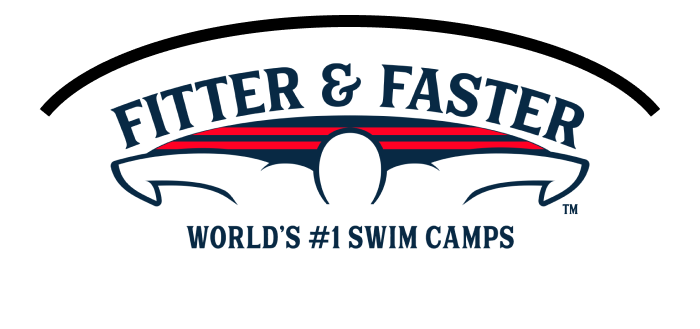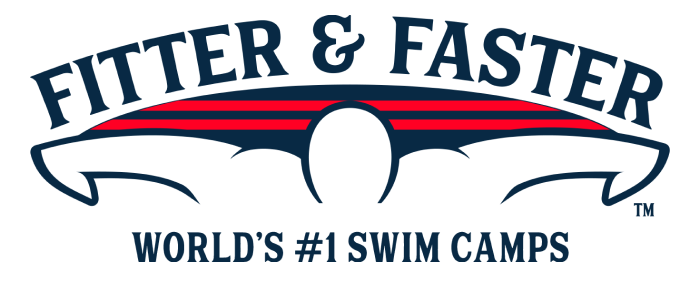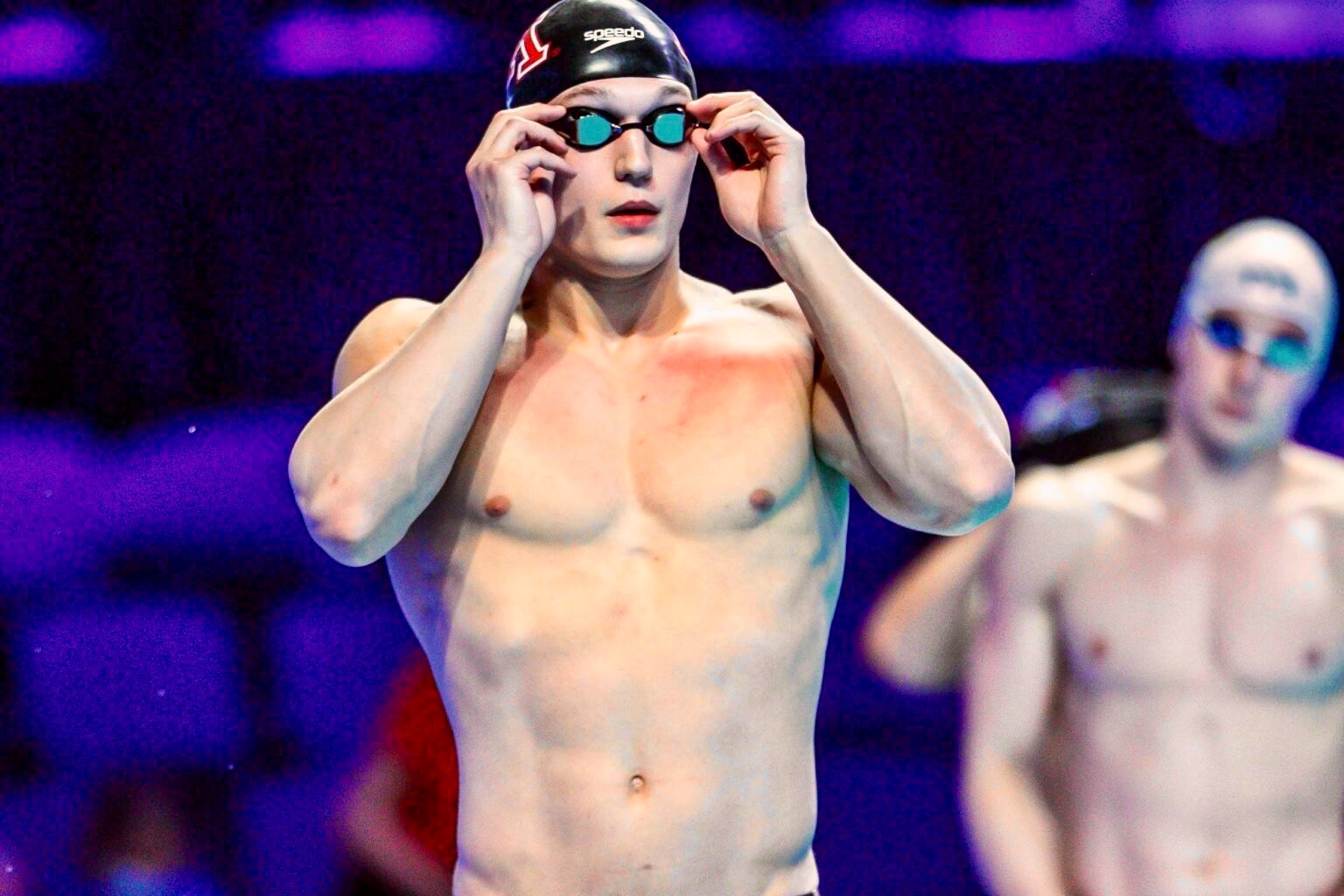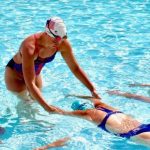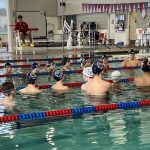Comprehensive Breaststroke Racing Swim Camp (Ages 13 & over)
Veterans Memorial Community Center
8055 Barbara Ave,
Inver Grove Heights,
MN 55077
Introduction
Fitter & Faster is producing a 2 day swim camp for competitive swimmers ages 13 & over at the Veterans Memorial Community Center in Inver Grove, Minnesota on June 14 & 15, 2025! Please click here for the swim camp page for ages 10 to 12.
COMPREHENSIVE BREASTSTROKE RACING SWIM CAMP (Ages 13 & over)
-> DAY 1 (Saturday, June 14): Breaststroke Technique
-> DAY 2 (Sunday, June 15): Breaststroke Racing & Training Skills
Scroll down for details on the curriculum!
-> Availability in each session of the swim camp is limited to 22 participants to ensure the highest level learning experience.
-> SAVE when you purchase an "Entire Camp Bundle” for your swimmer.
START TIMES:
DAY 1: Check in 2:45 PM. Camp: 3-6 PM
DAY 2: Check in 11:30 AM. Camp 11:45-2:45 PM
Suggested Participants
Our top priority is to provide a world-class learning experience for all participants at all of our camps. This camp has sessions for swimmers ages 13 & over. Participants will range from one year of competitive swimming experience to AAAA times and faster. If you are the parent of a child under the age of 13, click here!
Curriculum
At the highest level of swimming, breaststroke has the most varied technique. Out of the eight finalists at the Olympic Games, you might see eight different styles of breaststroke! A swimmer's timing and ability to eliminate resistance are hallmarks of an efficient and powerful breaststroker. No matter your swimmer’s level, this 2-day camp will strengthen their technique, racing and training skills that will lead to faster and more efficient breaststroke races… and faster IM’s! This swim camp will be led by Elite Clinician, Max McHugh!
- DAY 1 (Saturday, June 14): BREASTSTROKE TECHNIQUE: We want your swimmer to establish a well-timed breaststroke. Today we will practice various drills and skills that will enable your swimmer to have flowing hips, a powerful kick and a long, flowing stroke.
- Bodyline: A breaststroke race is going to be fastest with a proper bodyline. Even the slightest adjustment of the chin, neck, and/or back can make a huge difference. Elite breaststrokers focus on minimizing drag by “catching water” on their hands and feet as quickly as possible, so they can shoot back into a “straight bodyline” where they can glide at top speed.
- Kick: The kick creates a lot of the power in breaststroke. Swimmers need to keep their knees high in the water and snap their feet quickly around and back to create a powerful kick. Our clinicians will work with participants to strengthen their kick for the ultimate propulsion forward!
- Pull: The name of the game in breaststroke is to create as much propulsion as possible in the pull while minimizing resistance… and then quickly getting back into a straight bodyline to establish a high speed glide. Participants at this session will focus on setting up a proper "catch" and keeping their hands and elbows high on the water throughout the entire pull. The techniques your swimmer will practice will minimize resistance and enable them to maintain forward momentum for the fastest breaststroke.
- Timing: Fast, flowing breaststroke is the result of proper timing between a swimmer’s hands and feet. Establishing proper timing in your swimmer’s breaststroke will allow for more fluidity, power and speed. Participants in this session will learn how elite swimmers time their breaststroke for ultimate efficiency and the fastest races.
- DAY 2 (Sunday, June 15): BREASTSTROKE RACING AND TRAINING SKILLS: On the first day of this camp swimmers worked on techniques to implement an efficient breaststroke. On Day 2 we will work on applying speed to their breaststroke! Our objective is to get your swimmer to maintain their technique with distance per stroke, tempo, and flowing speed.
- Tempo: Tempo in breaststroke is the rate at which a swimmer can get back into the proper bodyline to establish a high-speed glide. When swimming breaststroke races, many athletes tend to take too many strokes without ever getting into the proper bodyline. At this camp we will explore different tempos that are sustainable for any distance and allow for the proper glide between strokes.
- Distance Per Stroke: One way to increase efficiency is to take fewer strokes. Counting the number of strokes a swimmer takes per lap, while improving technique to decrease that number, will enable them to be more efficient and even conserve energy. At this session, participants will discover how changing speeds might change their stroke-count, but should not change the effectiveness of each stroke.
- Pacing: A breaststroker’s pace is going to change during a race and from distance to distance. When swimming breaststroke, your swimmer can learn to measure their pace using tempo and distance per stroke. At this session we will practice race strategy pacing for all breaststroke events.
- Breaststroke Pullouts: The breaststroke pullout is an important and unique part of every breaststroke race. We will work with participants on minimizing resistance in their pull-outs and establishing maximum speed. The pullout can be used strategically, depending on the distance of the race, to cover more ground before breaking out.
- Training Breaststroke: At the end of this session your swimmer will do a short and fast swim set to practice everything they have learned over the past two days.
ASK QUESTIONS
Swimmers and parents are invited to ask the clinicians questions during a Q&A session. Gain insight into their training regimen, diet and nutrition, and recovery tactics.
WATCH THE CLINICIANS
Observe clinicians swim at full speed and demonstrate a progression of perfectly executed drills to achieve powerful, efficient, and fast swimming.
PUT YOUR SKILLS TO THE TEST
Throughout the camp, swimmers will practice what they've learned with some of the world's most elite Swimmer Clinicians and coaches!
Take a photo, get autographs, and chat with your clinicians!
Inquisitive, Educated Swimmers are Faster Swimmers! Sign up today!


